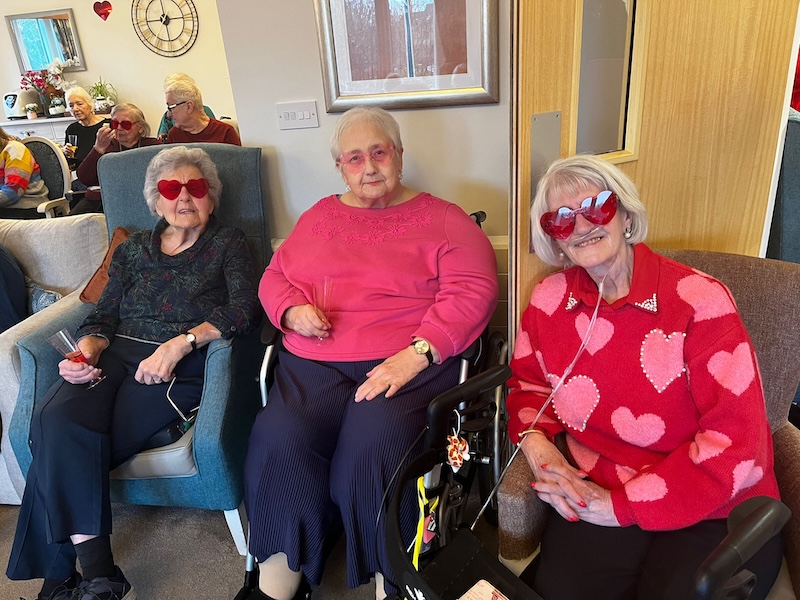What is a Care Home?

A care home, in its simplest form, is a facility that provides accommodation, support, and personal care for individuals who may have difficulty living alone due to age, illness, disability, or other reasons. Care homes cater to a variety of needs, including those of the elderly, individuals with physical or mental health conditions, and those requiring specialised care.
Care homes offer a range of services, including assistance with daily activities such as bathing, dressing, and meals. Some homes also provide nursing care for individuals with more complex medical needs. The goal of a care home is to enhance the quality of life for residents by providing a safe and supportive environment.
Care homes in the UK are regulated by government bodies, such as the Care Quality Commission (CQC), to ensure that they meet specific standards of care and safety. They can be privately owned, run by charities, or operated by local authorities. The type of care provided can vary, with some homes specialising in dementia care, while others may focus on respite or end-of-life care.
What Makes a Care Home Stand Out From the Others?
A Caring and Supportive Team
A care home should be led by a highly qualified manager and manned by trained and skilled staff, offering an excellent standard of care and support to its residents.
Although being trained and equipped with the proper knowledge and skills in caring for others is crucial, we should also not overlook the importance of being compassionate towards all residents.
The essence of a care home is to make the daily lives of residents as pleasurable and comfortable as possible. They should have an activities coordinator to design an enrichment programme that is fit for each resident and encourage them to live an independent but highly enriched life. These activities may include:
- Easy exercises and ball games that will help them keep fit
- Trivia games and quizzes that will encourage them to collaborate with other residents
- Choir practices that will improve their confidence, sense of belonging, and mental health
- Allowing green fingers to enjoy gardening and spending their time in the great outdoors
- Cooking tasty recipes and baking up treats that everyone in the home can enjoy
- And so much more!
Independence is always encouraged; residents have the freedom to choose which activities to be involved with and the team is in charge of evaluating if the activities are suitable for the residents’ abilities.

Beautiful Settings and Accommodation
Accommodation typically includes a private or semi-private bedroom for each resident. Rooms should be equipped with necessary furniture such as a bed, a wardrobe and often a bedside table. Some care homes may allow residents to bring in their own furniture or personal belongings to make their living space more familiar and comfortable.
Shared spaces within the care home, such as lounges, dining areas, and communal gardens, are often available for residents to socialise and engage in activities. The design and layout of care home accommodation aims to provide a homely and supportive environment while ensuring the safety and well-being of all residents.
It's essential for care homes to consider the individual needs and preferences of residents when allocating accommodation. For example, individuals with mobility challenges may require specific adaptations in their living space to enhance accessibility. Most UK care homes will also have specialised units or wings catering to individuals with specific care needs, such as dementia or palliative care.
The quality of accommodation and facilities can vary between care homes, and individuals or their families often consider factors such as room size, amenities, and the overall environment when choosing a suitable care home for their loved ones. It's reassuring to remember, regulatory bodies like the Care Quality Commission (CQC) assess and monitor care homes to ensure they meet standards of safety, cleanliness, and quality of care.
Excellent Food and Dining Choices
Food and dining options in a care home play a crucial role in supporting the overall well-being of residents. Care homes in the UK typically provide residents with meals that cater to their dietary needs and preferences. The specifics can vary between homes, but there are some common aspects:
Dining Areas: Residents typically have designated dining areas where they can enjoy their meals. Some care homes may have communal dining spaces, while others may offer more private settings, or a combination of both.
Meal Plans: Care homes usually offer a set meal plan that includes breakfast, lunch, and dinner. Special dietary requirements, such as vegetarian or medically prescribed diets, are taken into consideration.
Menus and Choices: Care homes often provide a rotating menu with a variety of choices. The goal is to offer nutritionally balanced meals while also accommodating individual tastes. Residents should always have the opportunity to express their food preferences.
Specialised Diets: For residents with specific dietary needs or medical conditions, care homes should have the capability to provide specialised diets. This is particularly important for individuals with diabetes, allergies, or other health concerns.
Snacks and Refreshments: In addition to main meals, care homes may offer snacks and refreshments throughout the day. Ensuring residents are well hydrated is also a focus to maintaining good health.
Social Aspect: Dining in a communal setting can provide a social experience for residents, promoting interaction and a sense of community. Most care homes will also organise special dining events or themed meals to enhance the dining experience.
It's important for care homes to consider the cultural, religious, and personal preferences of residents when planning meals. Regulatory bodies, such as the Care Quality Commission (CQC), may assess the quality of food and dining options as part of their inspections to ensure that residents receive nutritious and enjoyable meals in a dignified manner.
Families should always enquire about the meal options and dining experience when considering a care home for their loved ones.
Schedule of Events and Activities
Living life to the fullest means that, aside from accomplishing daily activities, the residents of the home are encouraged to pursue their preferred pleasurable pastime.
Various activities are carefully planned for each resident. These activities are intended to enhance their daily lives, stimulate them to interact with other residents and enhance their sense of belongingness within their new home.
The activities diary should include events such as Bonfire Night, Valentine’s Day and Burns Night. These special days with themed events and treats are something that all the residents can look forward to!
Celebration of birthdays and anniversaries should also be given great importance. These are wonderful reasons to be joyous, allowing families, friends, and other residents to sit back and join the revelry through specially prepared food and cakes.

How Can I Ensure My Loved One Receives the Highest Quality Care?
Before an individual or a family considers a care home, they should determine if the home would meet their needs and expectations for all the services they are looking for.
To give you an idea of what a care home offers, here are the services that you should expect:
- Spacious and comfortable accommodation
- Full activities programme
- Delicious and healthy meals and snacks
- Entertainment and games room
- Lounge areas
- Landscaped gardens
- WiFi access to residents
- Communal lounge areas
- Transport vehicle for outings
You should also become familiar with the type of care that a care home is registered to provide. It is crucial that the home follows a care plan for each resident, whether that be for nursing, respite or dementia care.
Care homes will encourage a resident's family to be an active part of their care planning and will do their very best to respond to any changing needs and feedback they may have regarding their loved ones.
Residential Care
Residential care allows residents to live independent lives with as much or as little support as they feel is needed. Since this allows the residents to be free from the strain of managing a household, they are able to enjoy social interactions with other residents.
It's important to note that residential care is distinct from nursing care. Residential care is suitable for individuals who need support with daily living activities but do not have complex medical needs requiring regular nursing attention. For those with more intensive medical requirements, nursing homes or facilities may be more appropriate.
When considering residential care options, families should assess the facilities, the level of care provided, staff qualifications, and the overall environment to ensure that it meets the specific needs and preferences of their loved ones.
Nursing Care
This type of care is very crucial for residents with nursing needs, high dependency requirements and end-of-life care. Nursing care, often provided in nursing homes or nursing care facilities, is a higher level of care compared to residential care. Nursing care is designed for individuals who have more complex medical needs that require regular attention from trained nursing staff.
When considering nursing care options, families typically look at the qualifications of the nursing staff, the range of medical services provided, the availability of specialised care for particular conditions, and the overall environment of the facility. The decision between residential care and nursing care depends on the individual's specific healthcare needs and the level of support required for daily living and medical care.
Dementia Care
Care home facilities should be fully prepared and equipped to care for residents living with dementia. This is possible through keeping up with training, understanding symptoms and common behaviours, being updated with dementia research and findings and most importantly, making the resident feel comfortable in their surroundings.
Dementia care can be provided in various settings, including dedicated dementia care homes, units within residential care homes, or even in-home care. Here are key aspects of dementia care:
Specialised Environment: Dementia care facilities are designed to provide a secure and supportive environment tailored to the unique needs of individuals with dementia.
Trained Staff and Personalised Care Plans: Staff undergo specialised training to understand and address the challenges of dementia, and care plans are tailored to cater to individual preferences and stages of the condition.
Structured Activities and Emotional Support: Dementia care includes structured activities to maintain familiarity and purpose, and staff provide emotional support to residents and their families, recognising the emotional challenges associated with dementia.
A dedicated team should be assigned to care for these residents and work closely with their relatives to create a detailed picture of the resident’s everyday life; allowing the team to create a plan of care and series of activities that will help the resident live an enriched life filled with comfort and happiness.
Respite Care Packages
There are many reasons for respite care, including convalescence, relief for the family carer, temporary care needs or post-hospital care. Respite care is valuable in supporting the well-being of both caregivers and those receiving care. It provides a temporary solution to ensure that individuals with care needs continue to receive support while offering caregivers the opportunity to rest and attend to their own needs.
Respite care packages have been designed to address all of these reasons. If recovering from surgery, this could mean that they will then be well rested and recovered for their return home. It can also enable a family carer to have some much-needed rest time too.

Ridgeway Rise Care Home in Swindon
We understand how much time, research, and effort go into choosing a care facility or nursing home for yourself or a loved one. It is important to us that all current and future residents, as well as their families, understand that they can turn to us for help at any point during the decision-making process; we are on hand to provide support in any way we can. We are more than happy to provide our expert advice and prospective residents are welcome to request a pre-admission consultation with our Home Manager to ensure that we can meet your exact needs prior to making an informed decision.
Our approach is to provide each and every one of our residents with care that is unique to them. Once a resident at Ridgeway Rise Care Home, you are allocated a primary care nurse who will discuss and assess requirements, create a personalised care plan, and regularly monitor and review the care you receive.
All of our employees are picked for their maturity, warmth, and compassionate nature, so you can rest assured that you or your loved one will receive the best possible care while staying with us at Ridgeway Rise Care Home in Swindon.
If you’d like to understand more about our care home and the services our dedicated team can offer you or your loved one, contact us at Ridgeway Rise to book a virtual tour.




